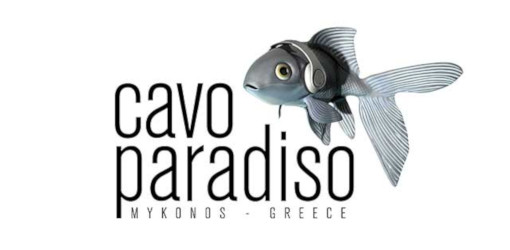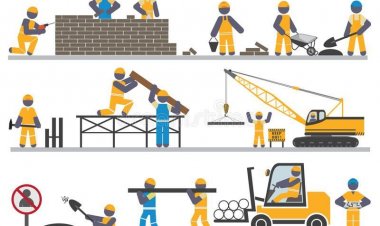Νέος Αλγόριθμος της Google, θα "τιμωρεί" αυστηρά το copy & paste
Η Google θα ανεβάζει ψηλά στις αναζητήσεις το αυθεντικό και πρωτότυπο περιεχόμενο - Elevating original reporting in Search - Google is bum

Η Google θα ανεβάζει ψηλά στις αναζητήσεις το αυθεντικό και πρωτότυπο περιεχόμενο - Elevating original reporting in Search - Google is bumping up original reporting in search results....
"Στόχος μας είναι να βοηθήσουμε τους χρήστες να αποκτήσουν πρόσβαση στις πλέον αξιόπιστες πηγές ενημέρωσης και να μπορούν να βρουν τις αρχικές δημοσιογραφικές πληροφορίες και ειδήσεις από όπου ξεκινάει μια ιστορία ενώ ταυτόχρονα θα ανταμείβονται οι εκδότες που παράγουν αυθεντικό περιεχόμενο".
Τα πρωτότυπα άρθρα θα μένουν για πολύ περισσότερο χρόνο ψηλά σε σχέση με όσα αντιγράφουν ακόμη και εν μέρει άλλες πηγές περιεχομένου. Ο αλγόριθμος έχει ήδη μπει σε λειτουργία στην κεντρική υπηρεσία γενικής αναζήτησης και σύντομα θα εφαρμοσθεί και στο Google News και το Google Discover.Για το λόγο αυτό, η Google έχει δημιουργήσει έναν "στρατό" από 10.000 αξιολογητές σε ολόκληρο τον κόσμο οι οποίοι ελέγχουν και αξιολογούν τα αποτελέσματα του συγκεκριμένου αλγόριθμου έτσι ώστε να γίνονται οι κατάλληλες αλλαγές όταν αυτός "πέφτει έξω".
Οι αλλαγές αυτές δεν θα γίνονται άμεσα αλλά μόνο όταν συγκεντρώνεται ένα πλήθος στοιχείων για το κάθε ενημερωτικό ιστότοπο και την ποιότητα και αξιοπιστία του δημοσιογραφικού περιεχομένου.
Παρά το ότι η υποδοχή του νέου αλγόριθμου που θα "τιμωρεί" όσους αντιγράφουν ήταν σε γενικές γραμμές θετική, υπάρχει και η αρνητική κρητική το επιχείρημα της οποίας είναι ότι έτσι ευνοούνται τα μεγάλα ΜΜΕ που έχουν τη δυνατότητα να παράγουν πρωτότυπο περιεχόμενο ενώ θα "χτυπηθούν" μικρότεροι ιστότοποι και τοπικά Μέσα Ενημέρωσης.

Elevating original reporting in Search
Ranking changes to support original reporting
In today’s fast-paced world of news, the original reporting on a subject doesn’t always stay in the spotlight for long. Many news articles, investigations, exclusive interviews or other work can be so notable that they generate interest and follow-up coverage from other publications. And in other cases, many stories cover a single news development, with all of them published around the same time. This can make it difficult for users to find the story that kicked everything off. While we typically show the latest and most comprehensive version of a story in news results, we've made changes to our products globally to highlight articles that we identify as significant original reporting. Such articles may stay in a highly visible position longer. This prominence allows users to view the original reporting while also looking at more recent articles alongside it. There is no absolute definition of original reporting, nor is there an absolute standard for establishing how original a given article is. It can mean different things to different newsrooms and publishers at different times, so our efforts will constantly evolve as we work to understand the life cycle of a story.Changing our rater guidelines
We use algorithms to sort through everything we find on the web and organize this content in a way that is helpful. Those algorithms are composed of hundreds of different signals that are constantly updated and improved. To tune and validate our algorithms and help our systems understand the authoritativeness of individual pages, we have more than 10,000 raters around the world evaluating our work - their feedback doesn't change the ranking of the specific results they're reviewing; instead it is used to evaluate and improve algorithms in a way that applies to all results. The principles that guide how they operate are mapped out in our search rater guidelines, a public document that allows raters to better understand and assess the unique characteristics of content that appears in Search results.
In short: these guidelines are the clear description of what we value in content when ranking. And we’ve just introduced a change to help us gather new feedback so that our automated ranking systems can better surface original content.
To illustrate the update, in section 5.1 of the guidelines, we instruct raters to use the highest rating, “very high quality,” for original news reporting “that provides information that would not otherwise have been known had the article not revealed it. Original, in-depth, and investigative reporting requires a high degree of skill, time, and effort.”
In addition to recognizing individual instances of original reporting at the page level, we also ask raters to consider the publisher’s overall reputation for original reporting. That update in section 2.6.1 reads: “Many other kinds of websites have reputations as well. For example, you might find that a newspaper (with an associated website) has won journalistic awards. Prestigious awards, such as the Pulitzer Prize award, or a history of high quality original reporting are strong evidence of positive reputation.”
We hope these updates to elevate original reporting will provide people with a deeper understanding of their changing communities and the conversations going on around them. Giving everyone better access to original journalism across all types of stories—ranging from movies, sports, music and celebrity scoops to the serious journalism behind #MeToo, the Panama Papers and the opioid crisis—is all about helping people stay informed about the news that matters to them.




















![Ferry Destinations: Οι δημοφιλέστεροι ακτοπλοϊκοί προορισμοί της χώρας [Ferryscanner]](https://mykonosticker.com/uploads/images/2022/03/image_140x98_6229b368d24f8.jpg)


![Ferry Destinations: Οι δημοφιλέστεροι ακτοπλοϊκοί προορισμοί της χώρας [Ferryscanner]](https://mykonosticker.com/uploads/images/2022/03/image_705x436_6229b368adb52.jpg)



![Tropicana Summer Opening: Tropicana Mykonos is opening for the 2024 summer season on April 24! [pics & video]](https://mykonosticker.com/uploads/images/2024/04/image_705x436_6628c4176b590.jpg)